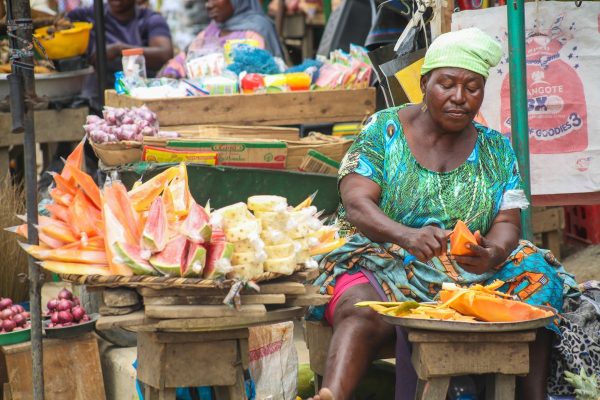From Nigeria to Kenya and South Africa, stories of missing public funds are common. Misappropriated funds meant for critical infrastructure like schools, roads, bridges and hospitals often make headlines: US$54.9 million diverted from free primary education in Kenya, a Nigerian clerk claiming a snake ate $100,000, hospital workers in Ghana selling personal protective equipment (PPEs) for personal gain, and $17 million in COVID-19 funds missing in South Africa.
One common feature across these countries is the lack of openly available and accessible information about these funds. This lack of transparency has severe consequences for millions. In Ghana, the PPE was sold while over 2,000 health workers were infected by COVID-19. In Nigeria, decades of corruption have left 63% of the population in poverty, with inadequate access to education, water, and healthcare. Many towns have unsafe roads, run-down hospitals, and face deadly cholera outbreaks due to poor water access. Some people must travel 15 kilometres to reach the nearest health facility, and many children learn in overcrowded classrooms without desks, libraries, computers, or toilets. Some even learn under trees.
At the 2024 International Anti-Corruption Conference (IACC) in Vilnius, Lithuania, a panel emphasised that active citizen participation and close collaboration between government and civil society are essential to addressing corruption and improving services.
However, Stephen Azantilow from Ghana noted that politicians have been resisting making information public because it would expose them. “Ghana used to perceive civil society as people who are noisemakers, as people who are there to disturb the government,” said Azantilow, anti-corruption director at Ghana’s Commission on Human Rights and Administrative Justice. “But this changed after Ghana joined the Open Government Partnership (OGP).”
Ghana joined the OGP in 2011. The OGP now includes 75 countries, each developing national action plans for greater transparency and civic participation. Azantilow credits the OGP with driving openness in Ghana and improving asset declaration by politicians.
In Nigeria, civil society promotes public procurement monitoring. A decade ago, public procurement information was scarce, allowing corruption to thrive. Now, platforms like Budeshi provide access to procurement data, including budget and contract details. This initiative has inspired Nigeria’s Bureau of Public Procurement to upload data on its portal.
These transparency efforts have empowered the public and journalists to expose corruption and ensure project completion. Nigerian journalist Sunday Elom noted the increased availability of government budget and project information compared to 10 years ago, making it harder for politicians to hide documents.
“There is more publicly available information on government budgets and projects online compared to 10 years ago when politicians benefited from hiding every public document and details from journalists with utmost impunity,” he said.
Despite these gains, challenges remain, such as a lack of openness around political party financing and political advertising. Azantilow highlighted the persistent lack of political will to implement transparency commitments. “One of the biggest challenges to the implementation of commitments in all parts of the world has always been a lack of political will,” said Azantilow. “And the lack of political will doesn’t just manifest itself only on politicians, even the state institutions.”
Although Nigeria’s Freedom of Information Act passed in 2011 enables citizens to request government-held information, such requests are often ignored. “For over four years I have sent at least 11 FOI [freedom of information] letters to both federal and state agencies. I have never received any response,” Elom said, adding that he is also worried about attacks on journalists trying to hold the government accountable.
Elom expressed concern about attacks on journalists and government attempts to stifle civil society. Nigerian lawmakers have faced opposition for attempting to regulate non-governmental organisations, similar to moves in Cambodia, Angola and Venezuela.
Despite these challenges, Elom remains optimistic.
Consistent media reporting and growing civil society pressure have compelled federal and state governments to make more documents and information available to the public, increasing public trust in the media’s ability to hold officials accountable.
“As little as the change might look, it has given hope to journalists and increased public trust in the media to hold public officials accountable,” he said.


